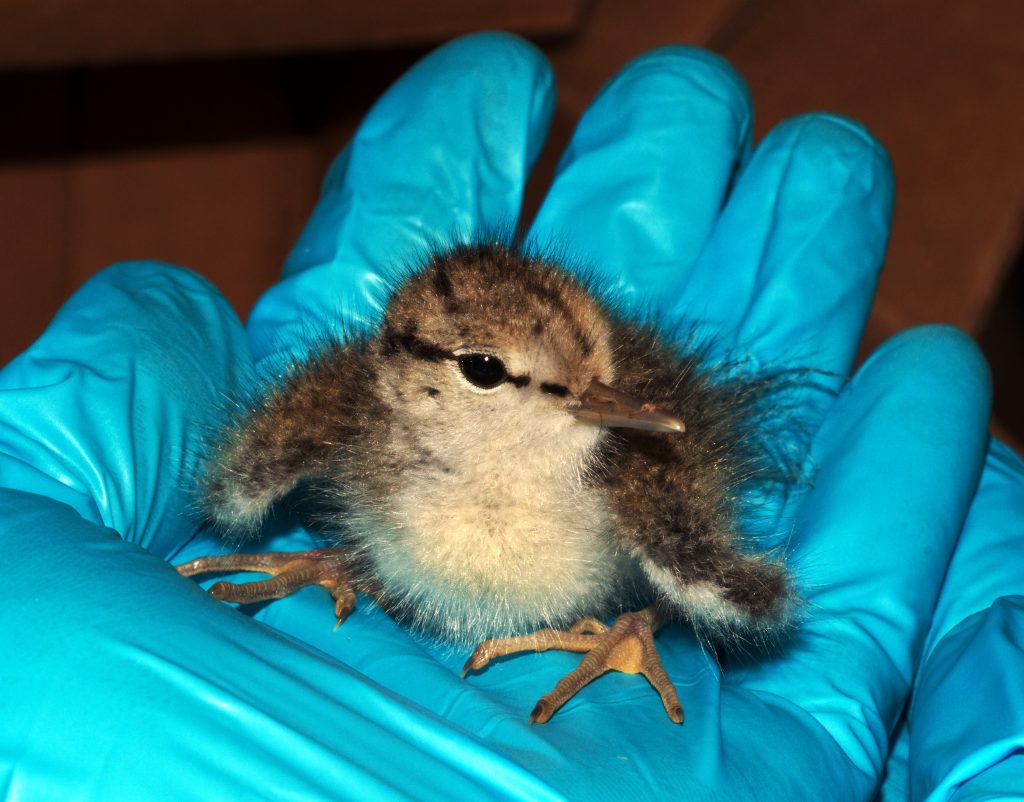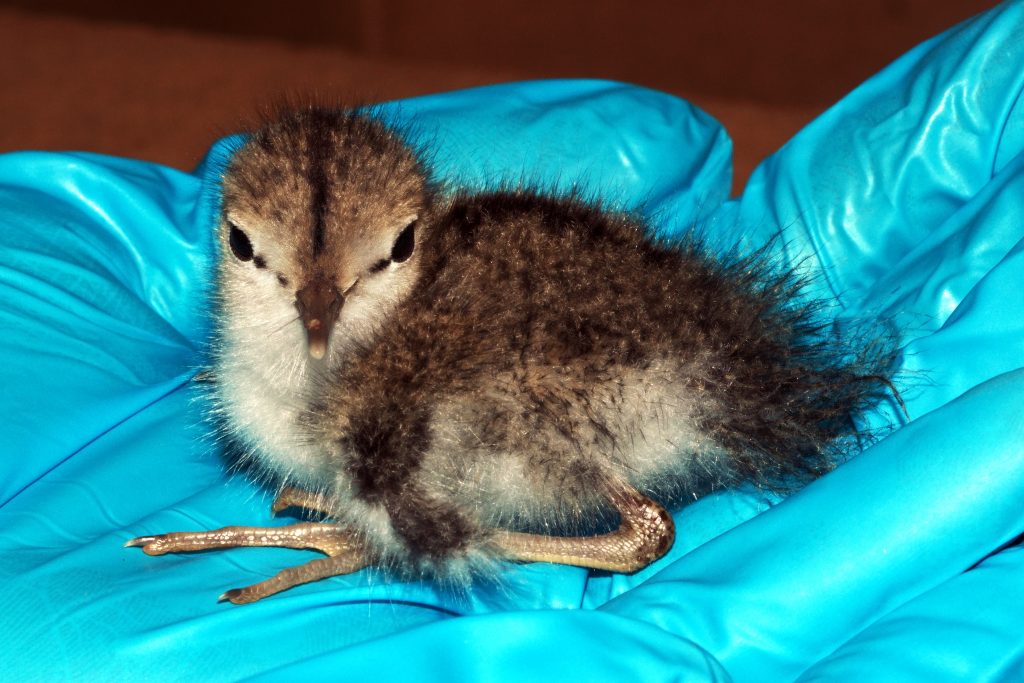Support Us
Since 1979 more than 140,000 animals have been treated by Wildlife Rescue.
Thanks to the support of individuals like you, Wildlife Rescue can provide a lifeline for animals in distress.
Found in freshwater areas such as rivers and streams, Spotted Sandpipers typically nest close to the shore. Unfortunately, this reliance on coastlines has led to many problems for these birds – especially when chemicals are dumped into water.
The usage of pesticides and other chemicals may seem harmless – but when these substances float downstream, they can create large problems for local wildlife. Chemicals like pesticides can deplete resources, making it harder for wildlife like Spotted Sandpipers to find food sources they are dependant on. The digestion of pesticides can lead to wildlife having a difficult time reproducing or lead to the baby birds being born with deficiencies.
Similarly, discarded litter along BC’s beaches makes it harder for sandpipers to find safe habitats, and may even lead to entanglement. International Coastal Cleanup Day (ICC) on September 18th is a reminder that shorelines, which are home to many different types of wildlife (including Spotted Sandpipers), are a vital part of our ecosystem. Protecting our shorelines protects our wildlife!

Dark spots on their white and brown feathers make these birds easy to distinguish on British Columbia’s shorelines. From May to August these small birds had their breeding season, building families in anticipation for their migration South for Winter.
When creating nests for their families, the male and female Spotted Sandpiper will choose a nest location under broad-leafed plants or, if there are predators nearby, below lots of vegetation. This area near the water is essential to their health since it provides their diet (which is primarily made up of aquatic larvae, flies, beetles and worms). Though it is less common, Spotted Sandpipers have also been known to eat fish! Smaller fish and even dead fish are both food sources for these sandpipers.

Helping our coastlines helps Spotted Sandpipers by…
Of course, helping injured birds is another great way to help! If you see a bird that has exposed bone or blood, bugs or insects covering it, no feathers, or a bird that is sleeping, human intervention is required. Please contact our Support Centre for support.
Avoid chemicals and keep Spotted Sandpipers safe!